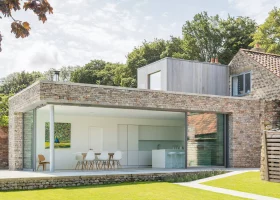
9th & 10th September, Westpoint Arena, Exeter. 100s of suppliers, seminars, expert advice. Explore all the options, all in one place – only at Build It Live.
Book your free tickets now
9th & 10th September, Westpoint Arena, Exeter. 100s of suppliers, seminars, expert advice. Explore all the options, all in one place – only at Build It Live.
Book your free tickets nowAny structural method created in a factory away from your building site comes under the bracket of offsite manufacture. This is a broad term covering a number of options: timber frame, structural insulated panel systems (SIPs) and oak frame.
These offer enhanced energy efficiency, short construction timescales and guaranteed build quality. Along with reduced running costs, it is clear there are compelling reasons to specify these systems for your self build project.
Intelligent, integrated construction methods such as closed panel timber frame, SIPs and volumetric modular options are now driving innovation in the timber industry – giving you more choice than the classic kit systems and panelised solutions.
Offsite construction describes structural systems that are factory-manufactured to an advanced level. This allows for onsite assembly (as opposed to construction) via controlled installation processes.
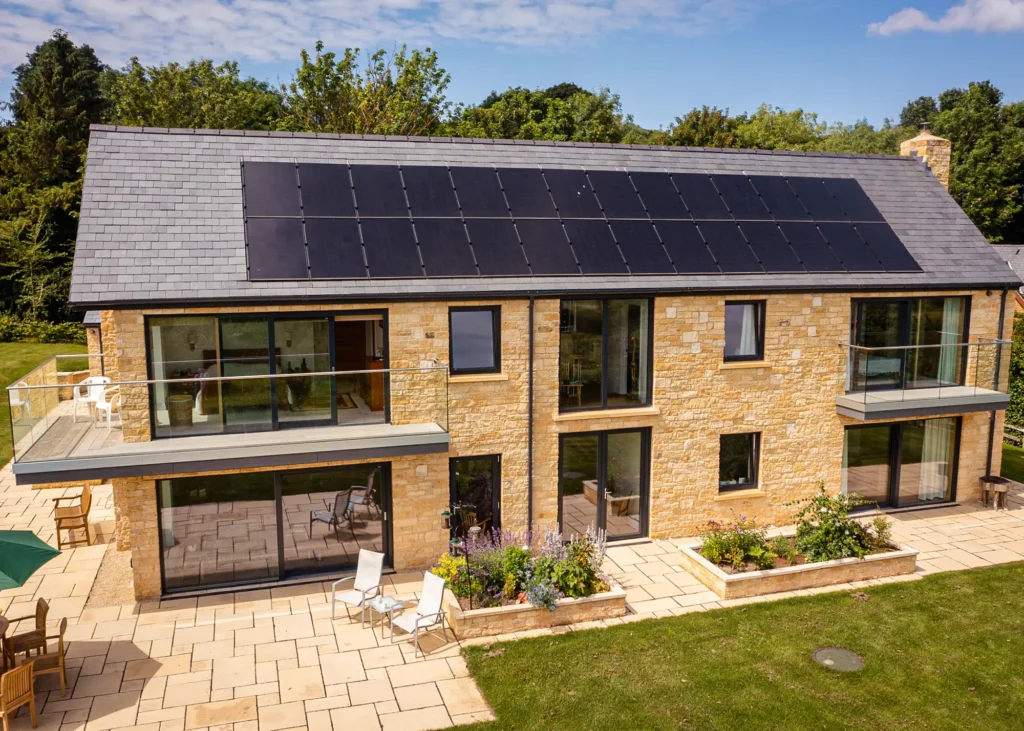
This timber frame home from Frame Technologies is clad in stone
Exact levels of prefabrication can vary, from factory-fitted insulation and pre-cut service channels through to panels that come complete with windows and doors already installed. Even internal finishes and external cladding can be pre-applied – especially where volumetric modular construction techniques are used.
6 Benefits of Offsite Manufacture
|
With standards for energy efficiency constantly ramping up, the construction industry as a whole is facing a real challenge to create homes that achieve the actual performance specified in the design brief. The accuracy and control involved in using timber-based offsite technology overcomes this issue.
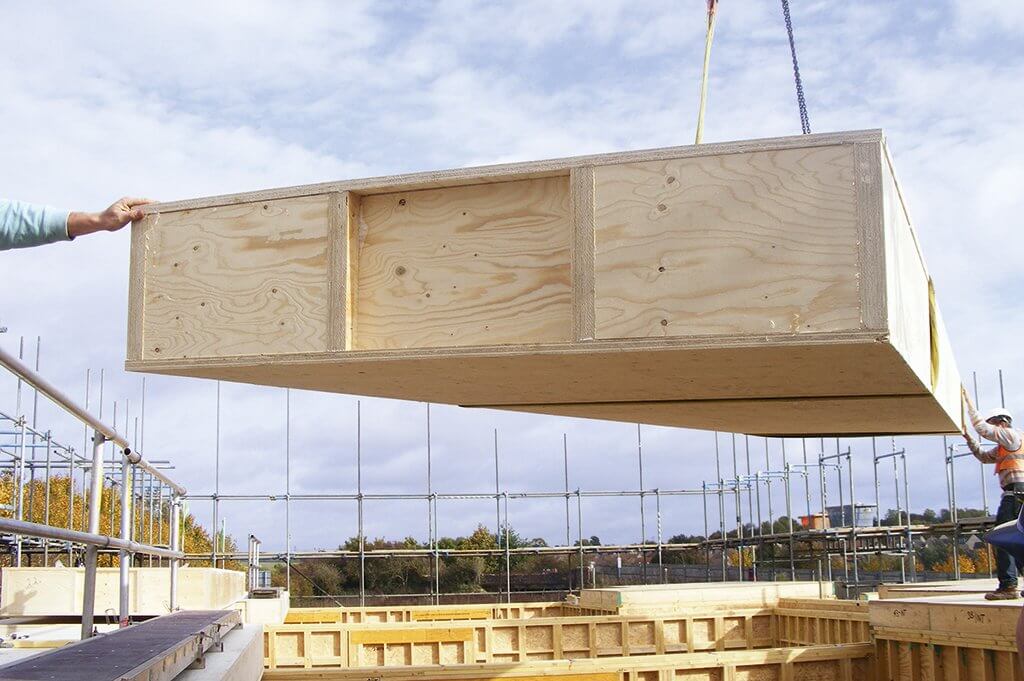
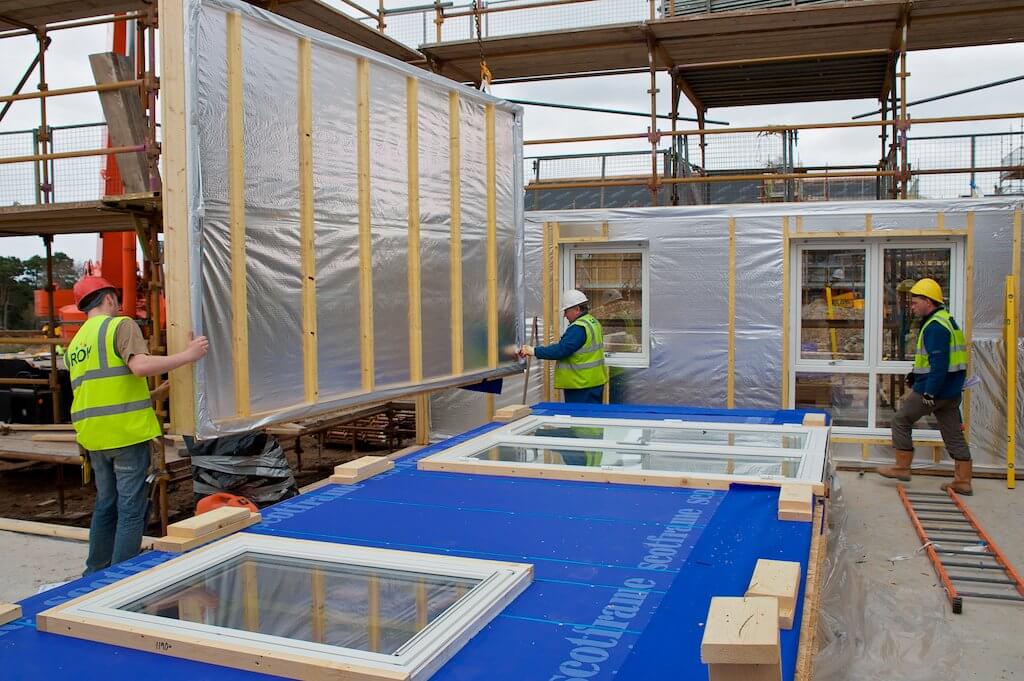
Your offsite manufacturer is likely to specialise in a specific type of structural system, which will be a tried and tested method that they’ve perfected – so you should be able to expect the house to perform as planned.
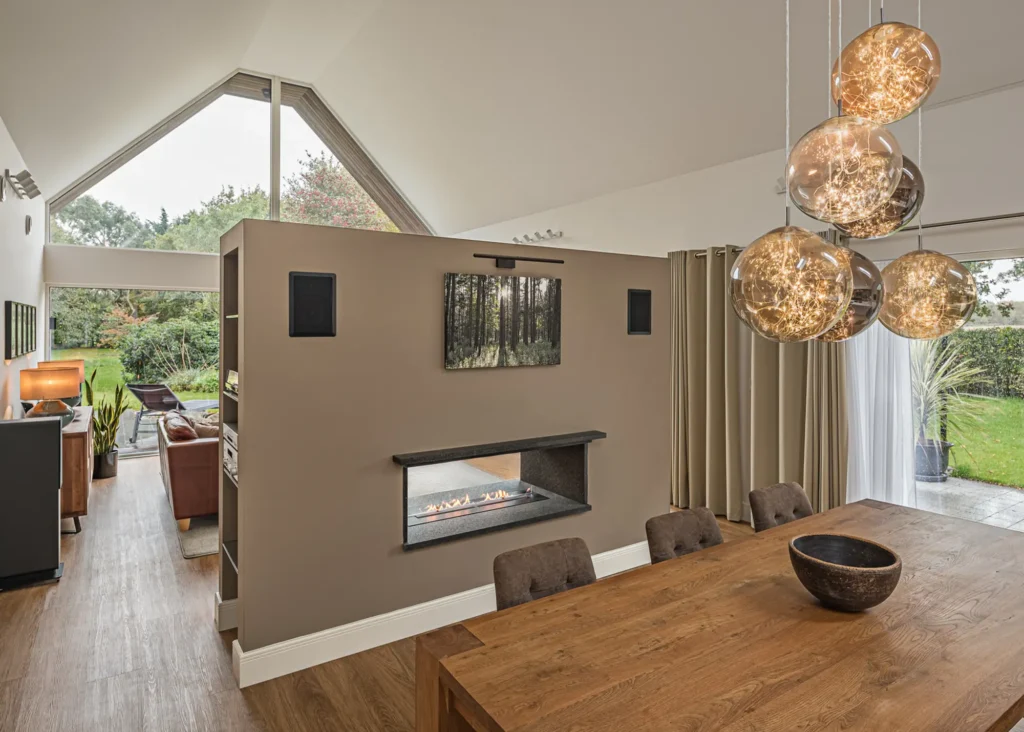
This property uses structural insulated panels from JML SIPs and was designed by Heb Homes
The controlled factory conditions also eliminate the risk of mistakes on site, meaning jobs won’t need to be completed twice. Offsite manufacture is not perfect for every project, of course, and you will need to ascertain whether it’s right for you by discussing with your architect and system provider. However, when you look at all the benefits and measure whole- life value, offsite structural timber systems are a cost-effective option.
| Offsite manufactured structural timber systems have advanced greatly in recent years, offering genuine cost, programme and performance assurance for self builders – especially when backed by the STA’s Quality Assurance Scheme (STA Assure). Providing confidence in the use of structural timber and determining member competency and compliance, the scheme is recognised by self build warranty providers, as well as other key stakeholders.
By using an STA member to deliver your self build project you will be assured that they meet or even exceed current standards and regulatory requirements. We have members who focus solely on the self build market and will support you through the whole design and build process. To find out more about the Structural Timber Association, visit the STA’s website. |
